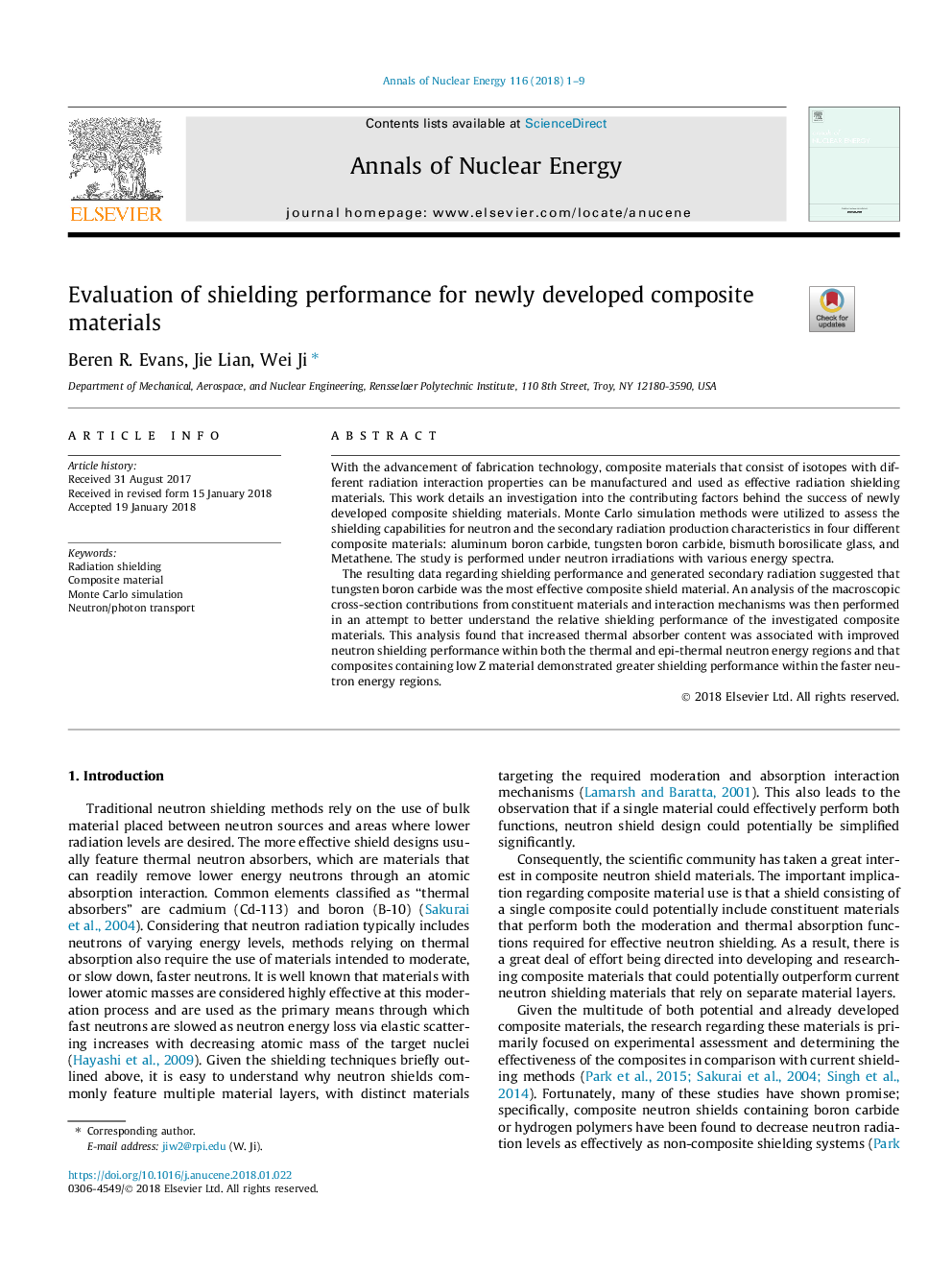| Article ID | Journal | Published Year | Pages | File Type |
|---|---|---|---|---|
| 8067020 | Annals of Nuclear Energy | 2018 | 9 Pages |
Abstract
The resulting data regarding shielding performance and generated secondary radiation suggested that tungsten boron carbide was the most effective composite shield material. An analysis of the macroscopic cross-section contributions from constituent materials and interaction mechanisms was then performed in an attempt to better understand the relative shielding performance of the investigated composite materials. This analysis found that increased thermal absorber content was associated with improved neutron shielding performance within both the thermal and epi-thermal neutron energy regions and that composites containing low Z material demonstrated greater shielding performance within the faster neutron energy regions.
Related Topics
Physical Sciences and Engineering
Energy
Energy Engineering and Power Technology
Authors
Beren R. Evans, Jie Lian, Wei Ji,
